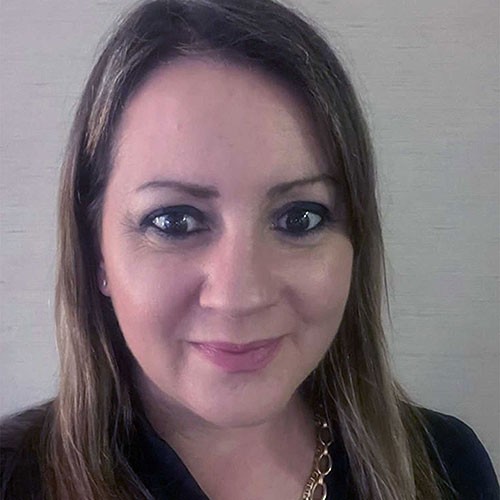
As controversial as it may be, EU companies are about to receive a simplified version of sustainability reporting as part of the ‘omnibus’ project underway in Brussels. These changes, expected later this year, will target Europe’s largest companies.
But SMEs can also expect to see change with the introduction of VSME — Voluntary Sustainability Reporting Standards for Non-Listed SMEs. Aimed at companies below two of the following thresholds — 250 employees, €50m in turnover or €25m in assets — the VSME offers a low-cost, less burdensome way to report sustainability information. This supports both policymakers and larger clients reporting under the full Corporate Sustainability Reporting Directive (CSRD).
‘Sustainability is not just about your greenhouse gas emissions, it’s about how you continue into the future’
For Aidan Clifford, advisory service manager with ACCA in Ireland and member of EFRAG’s VSME Community, the new VSME standards are ‘incredibly important… It gives you an opportunity to tell your story of how you are — and most businesses want to be — sustainable, because sustainability is not just about your greenhouse gas emissions, it’s about how you continue into the future.’
VSMEs were developed by the European Financial Reporting Group (EFRAG), a private body set up to advise the EU on financial reporting, in an accelerated process concluded at the end of 2024. EFRAG was also the body that developed European Sustainability Reporting Standards (ESRS) that were to be at the heart of the EU’s new sustainability reporting drive in CSRD. ESRS, and its 1,100 data points, were considered overwhelming for smaller companies and EFRAG was charged with finding a solution.
The SME standards come in two forms: the ‘basic’ module, with 11 data points, and the ‘comprehensive’ model, with nine more metrics if companies opt to go a stage further in their reporting.
The basic model covers disclosures about climate transition plans, energy usage and greenhouse gas emissions (Scope 1 and 2); water use, waste management and some social metrics such as workforce size, gender, location and pay rates.
The comprehensive module adds in further disclosures on greenhouse gases (Scope 3 emissions, for example), targets for reducing carbon output, climate risks and extra workforce reporting, such as gender ratios and human rights policies the company may be operating.
It is by no means trivial, but it is far short of the significant workload posed by CSRD.
Benefits to SMEs
Speaking to AB Magazine, Patrick de Cambourg, chair of EFRAG’s Sustainable Reporting Board (SRB), argues VSME will significantly help SMEs in three ways. First, cost: VSME forms a low-burden way of issuing a sustainability report rather than being caught up in the many and complex demands of CSRD. De Cambourg says the standards were designed for the business manager with ‘limited resources’ and with ‘at best one accountant’. VSME therefore constitutes ‘very simple tools’.
But VSME doesn’t just earn an advantage from being simple. According to de Cambourg, the process will enable managers to check whether there are revealing sustainability issues their company should be worried about. ‘That is protecting the value in the business,’ says de Cambourg.
VSME is limited to European companies when an international standard would be more useful
From a business system point of view, VSME will also give SMEs a single report they can use when approaching banks for financing. It is no coincidence, as de Cambourg points out, that bankers were included in the VSME consultation, alongside SME representatives. In short, VSME means SMEs will no longer have to produce a separate report for every financier they have dealings with.
Lastly, VSME will help SMEs with their clients, especially larger firms subject to the data reporting requirements of CSRD. The idea in the omnibus is that companies within scope would not be permitted to ask SME suppliers for more data than VSME reporting requires. And, as with banks, SMEs would only need compile a single report for passing to all clients – no more meeting endless and differing questionnaires for every client on a pitch list.
‘For management purposes, for financing purposes and also for a proper relationship – a customer relationship – with larger firms, there is an interest for SMEs,’ says de Cambourg.
Consistent and comparable
There is another big issue to draw out about VSME – it will standardise reporting and make it consistent and enable comparison between companies. Aidan Clifford says: ‘The idea is that it is consistent and comparable.’
There is a drawback. VSME is limited to European companies when an international standard with wider application would be more useful given the globalisation of trade. Comparability is a benefit not just for report users, but also for the reporting companies, he adds, because companies will be able to see what others are reporting. Clifford calls this the ‘learning effect’.
‘The fact that people are publishing will raise all ships,’ he says.
‘It has a completely different structure and covers an extremely limited set of data points’
There are lingering issues, however. The omnibus proposals mean changing the scope of CSRD so the threshold for mandatory use is lifted to companies with two out of the following: 1,000 employees, assets of €25m or a turnover of €50m.
That leaves a reporting gap between companies using VSME (up to 250 employees) and those subject to mandatory CSRD reporting. The proposal in the omnibus is to expand the use of VSME all the way up to the 1,000-worker threshold.
Heightened risks
This doesn’t impress everyone. Frank Bold, a campaigning law firm based in Brussels, opposes expansion because it fails to ensure sizeable companies will engage with suppliers about ‘heightened risks’ – human and environment-related.
‘The VSME standard,’ says the firm in its response to the omnibus proposals, ‘was prepared for very small companies, not mid-caps. It has a completely different structure and covers an extremely limited set of data points.’
Bold is not alone in having reservations. De Cambourg says this is a ‘critical question’ and the EU should take a ‘careful look’ at the issue.
‘There probably will be a capacity issue, but I think that will be filled quite quickly’
There have been concerns that VSME reporting may also present capacity and expertise issues for companies. Clifford downplays the expertise issue. ‘The issue is not sustainability and the ability to report on it. It’s capacity in the market as a whole because there’s a shortage of accountants.’
This may be helped by artificial intelligence as it takes over more of the work accountants do. ‘Sustainability reporting will be done,’ says Clifford. ‘There probably will be a capacity issue [at first], but I think that will be filled quite quickly.’
Fiona Murray, head of ACCA’s Brussels office, adds: ‘ACCA strongly supports the EU’s work on the VSME and welcomes the opportunity to contribute to shaping a proportionate and fit-for-purpose reporting framework. Through our response to the EFRAG consultation, Aidan’s involvement in the VSME Community, and our active engagement via EFAA and SMEunited, we are committed to ensuring the voice of smaller businesses and their advisers is clearly heard.’
The European Commission’s view on VSME is expected soon. That will place an onus on SMEs to consider adoption. It may just be the sustainable move companies need.



